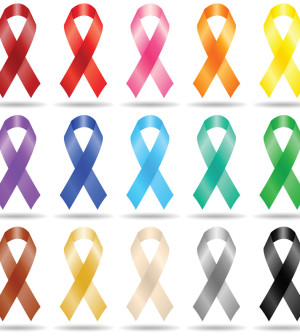- 8 Ways to Increase Dopamine Naturally
- 7 Best Breads for Maintaining Stable Blood Sugar
- Gelatin vs. Collagen: Which is Best for Skin, Nails, and Joints?
- The Long-Term Effects of Daily Turmeric Supplements on Liver Health
- Could Your Grocery Store Meat Be Causing Recurring UTIs?
- Are You Making This Expensive Thermostat Error This Winter?
- Recognizing the Signs of Hypothyroidism
- 10 Strategies to Overcome Insomnia
- Could Artificial Sweeteners Be Aging the Brain Faster?
- Techniques for Soothing Your Nervous System
Money Problems Can Compromise Breast Cancer Care


Money problems can prevent women from getting recommended breast cancer treatments, a new study suggests.
Researchers analyzed data from more than 1,300 women in the Seattle-Puget Sound area who were diagnosed with breast cancer between 2004 and 2011. The purpose was to see if their care met U.S. National Comprehensive Cancer Network treatment guidelines.
Women who had a break in their health insurance coverage were 3.5 times more likely than those with uninterrupted coverage to not receive the recommended care, the findings showed.
Compared to patients with an annual family income of more than $90,000, those with an annual family income of less than $50,000 were more than twice as likely to not receive recommended radiation therapy. In addition, the investigators found that lower-income women were nearly five times more likely to not receive recommended chemotherapy and nearly four times more likely to not receive recommended endocrine therapy.
The researchers also noted that patients who had constant money problems or had debt at the time of their cancer diagnosis were also less likely to receive the recommended treatments. This was also true for patients who had problems talking to a doctor, who did not have anyone to accompany them on their hospital visits, and who did not have anyone to take care of them and their household chores, the results indicated.
The findings were to be presented Sunday at an American Association for Cancer Research meeting in Atlanta. Data reported at meetings should be viewed as preliminary until published in a peer-reviewed journal.
“Surprisingly, we found that education or the facility where a woman was treated was not associated with receipt of guideline-recommended care,” study author Jean McDougall, a postdoctoral fellow at the Fred Hutchinson Cancer Research Center in Seattle, said in an association news release.
“Documenting and understanding these disparities is important for connecting women who are at high risk for not receiving all of their treatment with a patient navigator or social worker ahead of time so that we might increase the likelihood that they will get recommended treatment,” McDougall explained.
“Our results suggest that further studies are needed to address the root cause of these inequities, and to develop effective interventions,” McDougall added.
More information
The U.S. National Cancer Institute has more about breast cancer treatment.
Source: HealthDay
Copyright © 2026 HealthDay. All rights reserved.










